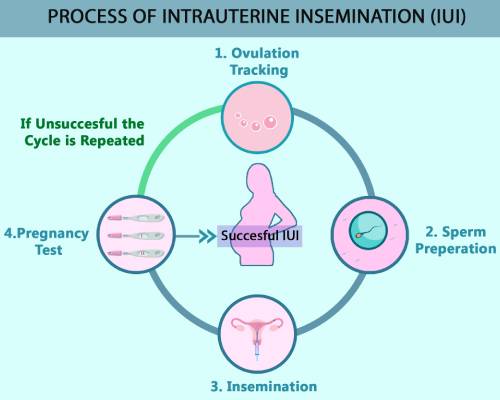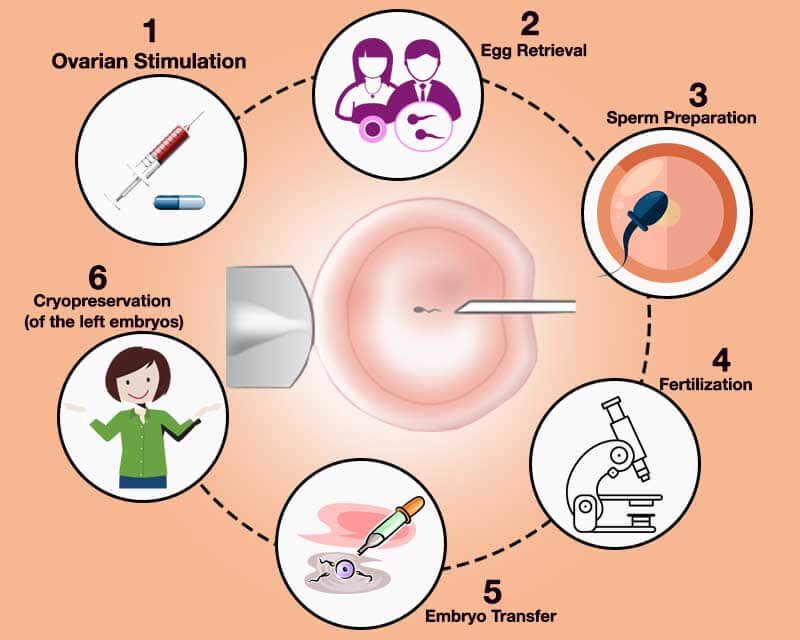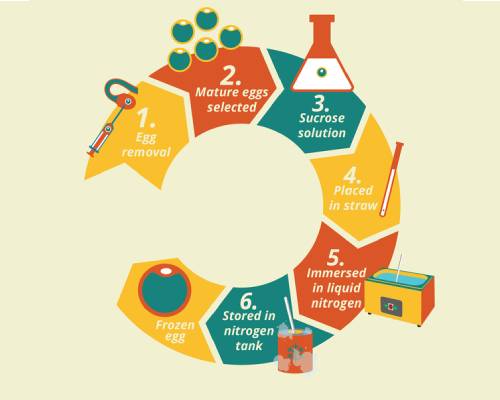The Department of Obstetrics and Gynaecology offers a broad spectrum of women’s health care services. The department also renders state-of-the-art technologies with superlative care providing a full range of healthcare services. These services include painless deliveries, minimally invasive surgeries, treating gynecological cancers by performing radical surgeries, chemotherapy and/or radiotherapy, management of high-risk pregnancies/late pregnancies, fertility care etcetera. While women who belong to different age groups encounter different health concerns are also appropriately assessed & addressed with the utmost care. The hospital provides comprehensive treatment for fibroids including open myomectomies unsuitable for endoscopic (keyhole) surgery. Our team of expert doctors & surgeons ensure the total safety & comfort of the patient as well as their children and only perform procedures that are pre-tested. The procedures performed include amniocentesis, Ultrasonography, & chronic villus sampling, which help in the early detection of many problems. The department also focuses on expert counseling & quality care on a wide canvas of subject matters.
Diya Fertility Centre
Fenn Specialty Hospital has been a top-notch choice of IVF centers amongst couples in and around Madurai. Comprising the best team of IVF specialists in the city, our compassionate doctors and fertility specialist provide you with the best possible solution and suggest treatments accordingly. Fenn Hospital offers several specialized investigative procedures for infertility related issues in men and women bestowing the couple a fruitful chance of a successful pregnancy. Backed by a 50 year legacy of clinical excellence and unbeatable expertise, Diya Fertility brings to the table an unparalleled commitment towards successful outcomes. Our success is based upon a combination of a patient-centric approach delivered by a team of doctors and surgeons, all of whom are experts in their respective fields.
Male Fertility Check-up
- Male fertility test
- Semen analysis.
Services and Facilities available at our IVF Centre in Madurai:
Female Fertility Check-up:
- Fertility health check
- Investigations: ovarian blood tests and scans, hormonal studies, follicular monitoring, and tubal patency
- Diagnostic surgical procedures
- Ovulation stimulation
- Egg donation
- Embryo freezing and thawing
- In-Vitro Fertilisation (IVF)
- Intra-uterine Insemination (IUI)
- Intra-cytoplasmic sperm injection (ICSI)

Intrauterine insemination is a procedure that involves placing sperm inside a woman’s uterus to facilitate fertilization. This fertility treatment does not involve the manipulation of a woman’s eggs. IUI may be selected as a fertility treatment while
Managing any of the following conditions:
IUI provides the sperm an advantage by giving it a head start, but still requires a sperm to reach and fertilize the egg on its own. The IUI procedure is simple and is performed by the doctor after the woman takes medications to stimulate the ovaries to increase egg production in order to improve the chance of achieving pregnancy. An ultrasound will be used to monitor the size of the follicles (follicles develop into eggs). The hormone, human Chorionic Gonadotropin (HCG), is administered to stimulate the release of eggs from the follicles. In the IUI lab, the semen sample of the husband is washed to separate the semen from the seminal fluid. The processed sperm is taken in a catheter and injected directly into the uterus. This process maximizes the number of sperm cells that are placed in the uterus , thus increasing the possibility of conception. The IUI procedure takes little time and involves minimal discomfort. The next step is to watch for signs and symptoms of pregnancy.
The global success rate from IUI procedure is about 20%, but GBR Clinic has been consistently giving about 30% success with its unique patient centric approach for treating infertility.
Fenn hospital’s well-qualified team of obstetricians and gynecologists have hands-on experience and expertise in performing a relatively painless Intrauterine Insemination (IUI) procedure without any incisions. This highly effective method of conception is very simple and often termed as a natural cycle wherein there are zero medications prescribed after conception. During the procedure, our skilled doctors take keen care in guiding the mothers-to-be and stimulate the ovaries to produce healthy and fertile eggs. Certain prescribed & clinically tested medications are also advised by specialists. This helps in promoting the ovaries to mature and release fertile eggs, thus aiding in achieving high chances of pregnancy. The primary difference between the natural and IUI conception is just that the sperms of the male donor or partner are collected, processed in our hi-tech laboratories, and is directly injected into the uterus. Once the procedure is successfully implemented, our team of doctors performs regular follow-ups to look out for the positive signs and symptoms of pregnancy.

What is In Vitro Fertilization?
This is an assisted reproductive technology that helps in fertilization by extracting eggs from female body and retrieving a sperm sample followed by manually combining both in a laboratory dish. After doing so, the doctors transfer the embryo(s) so developed into the female uterus.
Who should consider In Vitro Fertilization?
If the couple is having unexplained infertility problems or individual partners are having a genetic disorder than In Vitro Fertilization treatment is for them. Apart from these problems, if a woman had to remove the fallopian tube from her body due to some medical conditions or had a premature ovarian failure then this treatment can solve all their infertility problems. Couples, where the male partner is having low sperm count can also consider this treatment.
The entire treatment is based on five steps.

ICSI means injection of the sperm into the middle of the egg. ICSI is an effective method to fertilize the egg.
As with IVF, the ovaries are first stimulated by injections and eggs are retrieved.IVF with ICSI involves the use of specialised micromanipulator and an inverted microscope that enables embryologists to pick up individual sperms in a tiny specially designed hollow ICSI needle. The needle is then carefully advanced through the outer shell of the egg and egg membrane and the sperm is then injected into the inner part (cytoplasm) of the egg.

Sperm can be cryopreserved and stored at very low temperature for future attempts at conception using IUI or IVF. Semen cryopreservation is commonly performed when the male partner will not be available for timed insemination, for men who experience difficulty in the process of semen collection, and in men whose reproductive health is threatened by medical treatments such as cancer therapy. Ejaculated sperm found in semen have been cryopreserved clinically since the 1980s. Depending on the number and quality of the thawed semen, the attempt to produce a pregnancy in the partner will either be by simple timed insemination or by in vitro fertilization.
Testicular sperm can be recovered surgically from some but not all men with azoospermia (absence of sperm in the semen). Testicular sperm, when present, are usually suited to cryopreservation but will be few in number and will therefore require in vitro fertilization with ICSI to attempt to create a pregnancy. Our Virginia fertility clinic provides semen cryopreservation services.
It is generally believed that the cryopreservation process itself does not increase the risk of birth defects in children conceived with thawed sperm.
Oocyte (Egg) Cryopreservation
Oocyte cryopreservation provides the opportunity to conserve patient’s eggs or oocytes at very low temperatures for future attempts at conception using IVF. Unlike sperm cryopreservation, egg freezing has a very short history. Between 100 and 200 children have been born worldwide following egg freezing. Although these children do not appear to exhibit unusual health problems, there is not enough data to conclude that this method is safe. Therefore egg freezing is considered experimental and patients who request oocyte cryopreservation will be offered the procedure as part of a research protocol.
Egg freezing requires that the patient undergo ovarian stimulation and surgical procedures to acquire the oocytes. The oocytes are chilled by one of two methods, slow-rate cooling or ultra-rapid freezing (vitrification). Upon thawing, in vitro fertilization procedures are needed to inseminate the eggs and to culture resultant embryos. Selected embryos may then be transferred into the patient’s uterus.
Oocyte cryopreservation is appropriate for women under 30 years of age who wish to defer family building into later years when ovarian output may decline, for couples who wish to limit the number of embryos created by assisted reproduction, or for women facing treatment such as cancer therapy that may diminish ovarian function.
Embryo Cryopreservation
Embryos can be cryopreserved and stored at very low temperatures to provide future opportunity for achieving conception. Embryo freezing is usually part of the in vitro fertilization and embryo transfer strategy when the number of high quality embryos exceeds the number required for immediate transfer into the uterus. Cryopreservation of human embryos has been shown to be a successful procedure and there are no reports of increased birth defects in pregnancies achieved through this process.

what is the process of egg freezing?
Egg freezing is the process of removing young healthy eggs from the ovaries and freezing them in a lab. Medically, this process is referred to as oocyte cryopreservation.
The first step of this procedure involves going through a fertility and health assessment. The health assessment is to check for STI’s. The fertility assessment is to determine the quality and quantity of eggs. Both assessments include pelvic ultrasounds and blood tests.
The reason why the health care provider may want to check the quality and quantity of eggs is to determine the number of eggs to freeze. For women who are between 37 and 40 years of age, freezing thirty eggs increases their chances of getting pregnant by 80%. Women who are under the age of 35 only need to freeze 15 eggs because their eggs are healthier and younger compared to those of women who are over 35.
what is age limit of egg freezing?
Some experts cannot agree on the best age to freeze eggs. Some say that it may not be necessary for a woman who is in her mid-20s to freeze eggs because they can conceive naturally at the age of 30.
However, some experts believe that since a woman’s fertility declines as she ages, so the best age to freeze eggs is between age 27 and 34. But keep in mind that the decision to freeze eggs varies from woman to woman depending on her age, where she is at in her life, and the reasons behind her wanting to freeze her eggs.
- IUI
-

Intrauterine insemination is a procedure that involves placing sperm inside a woman’s uterus to facilitate fertilization. This fertility treatment does not involve the manipulation of a woman’s eggs. IUI may be selected as a fertility treatment while
Managing any of the following conditions:
IUI provides the sperm an advantage by giving it a head start, but still requires a sperm to reach and fertilize the egg on its own. The IUI procedure is simple and is performed by the doctor after the woman takes medications to stimulate the ovaries to increase egg production in order to improve the chance of achieving pregnancy. An ultrasound will be used to monitor the size of the follicles (follicles develop into eggs). The hormone, human Chorionic Gonadotropin (HCG), is administered to stimulate the release of eggs from the follicles. In the IUI lab, the semen sample of the husband is washed to separate the semen from the seminal fluid. The processed sperm is taken in a catheter and injected directly into the uterus. This process maximizes the number of sperm cells that are placed in the uterus , thus increasing the possibility of conception. The IUI procedure takes little time and involves minimal discomfort. The next step is to watch for signs and symptoms of pregnancy.
The global success rate from IUI procedure is about 20%, but GBR Clinic has been consistently giving about 30% success with its unique patient centric approach for treating infertility.
Fenn hospital’s well-qualified team of obstetricians and gynecologists have hands-on experience and expertise in performing a relatively painless Intrauterine Insemination (IUI) procedure without any incisions. This highly effective method of conception is very simple and often termed as a natural cycle wherein there are zero medications prescribed after conception. During the procedure, our skilled doctors take keen care in guiding the mothers-to-be and stimulate the ovaries to produce healthy and fertile eggs. Certain prescribed & clinically tested medications are also advised by specialists. This helps in promoting the ovaries to mature and release fertile eggs, thus aiding in achieving high chances of pregnancy. The primary difference between the natural and IUI conception is just that the sperms of the male donor or partner are collected, processed in our hi-tech laboratories, and is directly injected into the uterus. Once the procedure is successfully implemented, our team of doctors performs regular follow-ups to look out for the positive signs and symptoms of pregnancy.
- IVF
-

What is In Vitro Fertilization?
This is an assisted reproductive technology that helps in fertilization by extracting eggs from female body and retrieving a sperm sample followed by manually combining both in a laboratory dish. After doing so, the doctors transfer the embryo(s) so developed into the female uterus.
Who should consider In Vitro Fertilization?
If the couple is having unexplained infertility problems or individual partners are having a genetic disorder than In Vitro Fertilization treatment is for them. Apart from these problems, if a woman had to remove the fallopian tube from her body due to some medical conditions or had a premature ovarian failure then this treatment can solve all their infertility problems. Couples, where the male partner is having low sperm count can also consider this treatment.
The entire treatment is based on five steps.
- ICSI
-

ICSI means injection of the sperm into the middle of the egg. ICSI is an effective method to fertilize the egg.
As with IVF, the ovaries are first stimulated by injections and eggs are retrieved.IVF with ICSI involves the use of specialised micromanipulator and an inverted microscope that enables embryologists to pick up individual sperms in a tiny specially designed hollow ICSI needle. The needle is then carefully advanced through the outer shell of the egg and egg membrane and the sperm is then injected into the inner part (cytoplasm) of the egg.
- Embryo Cryopreservation
-

Sperm can be cryopreserved and stored at very low temperature for future attempts at conception using IUI or IVF. Semen cryopreservation is commonly performed when the male partner will not be available for timed insemination, for men who experience difficulty in the process of semen collection, and in men whose reproductive health is threatened by medical treatments such as cancer therapy. Ejaculated sperm found in semen have been cryopreserved clinically since the 1980s. Depending on the number and quality of the thawed semen, the attempt to produce a pregnancy in the partner will either be by simple timed insemination or by in vitro fertilization.
Testicular sperm can be recovered surgically from some but not all men with azoospermia (absence of sperm in the semen). Testicular sperm, when present, are usually suited to cryopreservation but will be few in number and will therefore require in vitro fertilization with ICSI to attempt to create a pregnancy. Our Virginia fertility clinic provides semen cryopreservation services.
It is generally believed that the cryopreservation process itself does not increase the risk of birth defects in children conceived with thawed sperm.
Oocyte (Egg) Cryopreservation
Oocyte cryopreservation provides the opportunity to conserve patient’s eggs or oocytes at very low temperatures for future attempts at conception using IVF. Unlike sperm cryopreservation, egg freezing has a very short history. Between 100 and 200 children have been born worldwide following egg freezing. Although these children do not appear to exhibit unusual health problems, there is not enough data to conclude that this method is safe. Therefore egg freezing is considered experimental and patients who request oocyte cryopreservation will be offered the procedure as part of a research protocol.
Egg freezing requires that the patient undergo ovarian stimulation and surgical procedures to acquire the oocytes. The oocytes are chilled by one of two methods, slow-rate cooling or ultra-rapid freezing (vitrification). Upon thawing, in vitro fertilization procedures are needed to inseminate the eggs and to culture resultant embryos. Selected embryos may then be transferred into the patient’s uterus.
Oocyte cryopreservation is appropriate for women under 30 years of age who wish to defer family building into later years when ovarian output may decline, for couples who wish to limit the number of embryos created by assisted reproduction, or for women facing treatment such as cancer therapy that may diminish ovarian function.
Embryo Cryopreservation
Embryos can be cryopreserved and stored at very low temperatures to provide future opportunity for achieving conception. Embryo freezing is usually part of the in vitro fertilization and embryo transfer strategy when the number of high quality embryos exceeds the number required for immediate transfer into the uterus. Cryopreservation of human embryos has been shown to be a successful procedure and there are no reports of increased birth defects in pregnancies achieved through this process.
- Egg Preservation
-

what is the process of egg freezing?
Egg freezing is the process of removing young healthy eggs from the ovaries and freezing them in a lab. Medically, this process is referred to as oocyte cryopreservation.
The first step of this procedure involves going through a fertility and health assessment. The health assessment is to check for STI’s. The fertility assessment is to determine the quality and quantity of eggs. Both assessments include pelvic ultrasounds and blood tests.
The reason why the health care provider may want to check the quality and quantity of eggs is to determine the number of eggs to freeze. For women who are between 37 and 40 years of age, freezing thirty eggs increases their chances of getting pregnant by 80%. Women who are under the age of 35 only need to freeze 15 eggs because their eggs are healthier and younger compared to those of women who are over 35.
what is age limit of egg freezing?
Some experts cannot agree on the best age to freeze eggs. Some say that it may not be necessary for a woman who is in her mid-20s to freeze eggs because they can conceive naturally at the age of 30.
However, some experts believe that since a woman’s fertility declines as she ages, so the best age to freeze eggs is between age 27 and 34. But keep in mind that the decision to freeze eggs varies from woman to woman depending on her age, where she is at in her life, and the reasons behind her wanting to freeze her eggs.



 24 Hours support
24 Hours support
